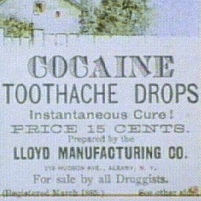Decriminalizing All Drugs: An Update from Portugal
Monday, January 03, 2011

Ten years after it decriminalized all illegal drugs, Portugal has not descended into a narcotic hell, as some predicted when the government passed a groundbreaking law in 2000. Instead, the country has managed to shift resources away from prosecuting and imprisoning drug offenders and provided more counseling and rehab to addicts, whose numbers have not increased as a percentage of the population.
Over the past decade, drug-related court cases dropped 66%; drug-related HIV cases dropped 75%; the number of regular users remained at less than 3% of the population for marijuana and less than 0.3% for heroin and cocaine; and the number of people treated for drug addiction rose 20%.
When the controversial law was passed, about 100,000 people, or 1% of the population, were addicted to illegal drugs.
People arrested in Portugal with more than ten days’ worth of a drug are treated as traffickers and can be prosecuted in criminal courts.
The success story has prompted officials from other Western countries—the U.S., Norway, Denmark, Australia and Peru—to visit Portugal to see what they can learn about addressing their own societies’ drug problems.
-Noel Brinkerhoff
Portugal's Drug Decriminalization Pays Off; U.S. Turns to Small Country for Answers (by Barry Hatton and Martha Mendoza, Associated Press)
What Can We Learn from the Portuguese Decriminalization of Illicit Drugs? (by Caitlin Elizabeth Hughes and Alex Stevens, British Journal of Criminology) (pdf)
Decriminalizing All Drugs: The Case of Portugal (by Noel Brinkerhoff, AllGov)
Drug Decriminalization in Portugal: Lessons for Creating Fair and Successful Drug Policies (by Glenn Greenwald, Cato Institute) (pdf)
- Top Stories
- Unusual News
- Where is the Money Going?
- Controversies
- U.S. and the World
- Appointments and Resignations
- Latest News
- Trump to Stop Deportations If…
- Trump Denounces World Series
- What If China Invaded the United States?
- Donald Trump Has a Mental Health Problem and It Has a Name
- Trump Goes on Renaming Frenzy






Comments